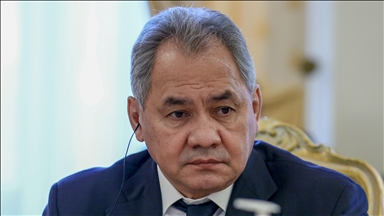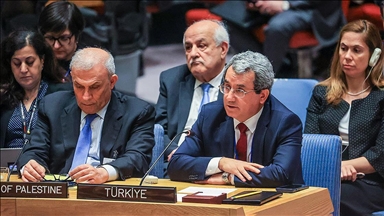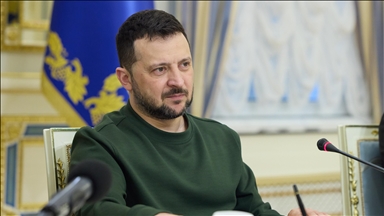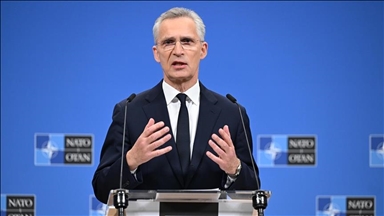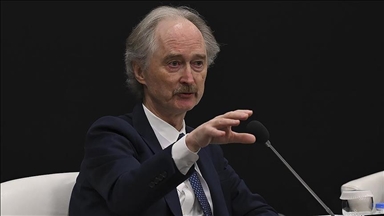US policy confused in Syria and Mideast, say experts
Distracted by different crises in the region, the US has failed to commit to removing Assad from power as it fights ISIL in Iraq and Syria
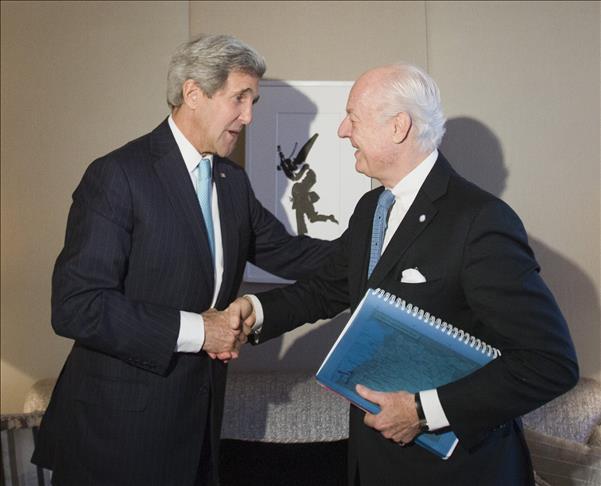
WASHINGTON
UN Special Envoy to Syria Staffan de Mistura has recently been on a mission to mobilize international and regional support for a proposal to "freeze" conflict zones in various regions of Syria, starting with Aleppo.
De Mistura's proposal aims to secure a series of truces and temporary reconciliation pacts that could enable autonomous administrations in those areas.
During a meeting with De Mistura last week, U.S. Secretary of State John Kerry praised the envoy’s attempt to broker local cease-fires, saying he hoped it could "have
But Kerry also voiced support for Russia’s attempt to convene peace talks in Moscow between representatives of the Syrian government and the opposition.
"We hope that the Russian efforts could be helpful," he said.
Kerry comments have raised the question of whether U.S. policy in Syria is shifting on the removal of President Bashar al-Assad.
Experts, however, says there is no hidden message in Kerry's words as they
"The U.S. had been silent on the UN and Russian initiatives; even is now offering lukewarm support without, I think, believing either will bear fruit. But the U.S. does not want to be blamed for their failure," said Daniel Serwer, a senior fellow at the Center for Transatlantic Relations at Johns Hopkins School of Advanced International Studies.
Since 2013, the UN has tried to convene several meetings between opposition groups and the Assad regime but as the meetings failed the UN’s special envoy to Syria Lakhdar Brahimi resigned last year.
Serwer said he takes Kerry's words as the bare minimum he had to say but he would not be betting on the success of the initiative.
U.S. President Barack Obama,
Underscoring that position, Washington's motives toward Assad has not changed, Serwer added that Americans seem to be frightened of toppling him, for fear of what comes next.
Turkey and the U.S. have debated about priorities in Syria. Ankara has been pushing for the removal of the Assad regime blaming him for the emergence of radical groups rocking the region.
But Washington, while acknowledging Assad should go, has given priority to the elimination of the ISIL terror group.
Furthermore, as there is not a credible opposition group to take the control of the country if Assad is moved, his removal concerns the U.S., lest it makes the conditions there worse.
Thomas Donnelly, a fellow at Washington-based American Enterprise Institute believes that although U.S. officials
"I think at the moment they are hoping certainly that the Assad regime doesn't go too quickly. If it did, it would mean a victory by the Nusra Front or ISIS or some combinations of those two," he said, referring to an alternative name for ISIL.
When it comes to Kerry's hopes for de Mistura's initiative, Donnelly said that it means "nothing" because the U.S.’s priority is not the removal of the Syrian regime or even ISIL targets in Syria.
It is on ISIL in Iraq, he said, while claiming that even in Iraq, Washington does not do enough to have a significant effect.
"If it was serious, as in Afghanistan and Iraq after 9/11, when it spent trillions of dollars, it would leverage far larger sources there than it does today."
Donnelly blamed Obama for his reluctance to take more comprehensive action and suggested American policy would not change until a new president occupies the White House in 2017, or another 9/11 size attack happened in the U.S.
Crises unfolding and deepening one by one in the Middle East also contribute to the confusion within the administration concerning Syria.
Several countries in the region, particularly Libya and Yemen, have recently been rocked by chaos due to the lack of a consolidated power and security apparatus.
Amr Azzam, an assistant professor at Shawnee State University in Ohio, suggested that the upsurge of ISIL in Iraq, the civil conflicts in Libya and Yemen, as well as low-level conflicts in Lebanon, has contributed to the confusion in administration.
Instead of the dismantling all apparatuses of the regime as in Yemen, Libya or Iraq in 2003, he said the U.S. is after a "negotiated transition" in Syria that would require the removal of Assad and a dozen of his close aides while the remainder of the regime would be retained to fight terror in the country.
The administration circles tried to refrain from any action in Syria as long as the crisis was contained within the Syrian borders.
"They were constantly told that it is impossible to contain it there, it would spread and in 2013 it started to spread very badly," Azzam said. "Since then it spread to Lebanon and Iraq, it is on the borders of Jordan, and Saudi (Arabia) began to feel it. Even Turkey starts to feel it."
Underscoring that Washington is confused in the Middle East regarding the expanding crises across the region, he added that even for the new U.S. president who will occupy the White House in two years, many of the options on the table will be "predetermined by the conditions on the ground."
Greg Myre, a Middle East expert
"It is more about the priority on ISIS," he said, "and then they are de-emphasizing the actions against Assad right now."
The U.S. is concerned that if Assad disappeared from the scene, it will help ISIL for now, he said.
"Syria is full of paradoxes right now. I don't think there




